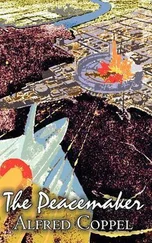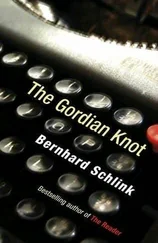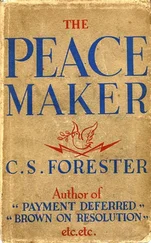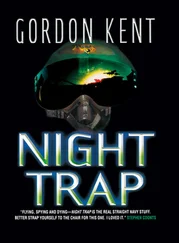“How real is my cover job?” O’Neill said.
Prior snickered. It was a beginner’s question. “Your job is being a case officer. Period.” So much for being the Deputy Attaché for Trade.
O’Neill hugged the folders to his chest and started down the corridor toward his temporary office. Go slow, read the RFIs, and play tennis. It wasn’t quite like being James Bond.
The Pentagon.
Alan Craik walked down the long, long corridor, past a stand of flags and a wall of framed photographs of admirals, past door after door after door. It was early; a hundred, a thousand other men and women were also walking this corridor and all the other corridors exactly like it in the concentric pentagons that gave the building its name. Now and again, through an open door, he could see right through to windows that gave on the vast inner courtyard, and, across it—over the trees, the walks, the tables—other windows, other walls.
He held his attaché case with his orders tight against his right side. His morning coffee burned in his throat. Christ, I’m all tensed up , he thought. Why? This is going to be a piece of cake . Tense because he had already persuaded himself he was going to hate it, he knew. All during that mostly sleepless night, he had told himself not to pre-judge it. Don’t anticipate. Be ready to be pleasantly surprised. Try to love it. If you don’t like your job, there’s something wrong with you, not the job.
He found the right door at last and turned his orders over to a yeoman, and eventually he was led to an office where a woman full commander with a pleasant face shook his hand and said Welcome aboard and Boy are we glad you’re here! We’re three slots short!
She took him around, introduced him. Sketched the roughest outline of the job—reading nine sets of dailies, compiling, writing five summaries, editing, briefing. A big smile. “Could you run a classified package out to the Agency for us? Got a courier pass? You get one up on four—Jackson’ll tell you how. Get it there before lunch, okay?” Big smile.
He had hardly settled behind a desk he was told was his (he was not sure; there was a brassiere in one otherwise empty drawer) when a woman in civilian clothes leaned in his cubicle door. “Hi. I’m Jan—I’m a plans editor. Not why I’m here. Subject: your turn to make the coffee.” Big smile. “Your turn started two minutes ago and the natives are getting restless.”
Not exactly James Bond.
IVI.
Suter had been away at the major contractor’s in Texas, and after that Touhey had had him trotting around congressional offices in Washington, so he hadn’t been at the Columbia location for almost two weeks. He was getting the feel of the job and the place, and he almost wished he had come there directly instead of by way of the Agency; the place had an enormous feeling of things happening, of energy. He found that he admired Touhey, even while his allegiance was to Shreed. Of course, that could change. But it was early days for any of that; for now, he was back, getting to know the offices, some of the people, getting to understand the complexities of the compartmentalization that kept Peacemaker’s secret-weapon function utterly separate from its public, intelligence function.
He had found early on why Han had rushed him through sub-level two. There were, in a limited-access lab, mockups of the modules that latched to Peacemaker’s main unit. Most people in the know referred to the main unit itself as Peacemaker, the modules as “the intel pack” and “the weapon.” Officially, these three were called the Low-Orbit Maneuverable Satellite, or LOMS; the Acquisition and Radiation Module, or ARM; and the Direct Application Module, DAM. Everybody agreed that the weapon module should somehow have had the ARM acronym, but that wasn’t the way it had worked out. Actually, DAM sounded not too shabby as the nickname of a weapon.
Part of the design problem of Peacemaker was Touhey’s requirement that ARM and DAM attach to the LOMS in exactly the same way and have exactly the same shell. Visually, it would be difficult to tell one from the other; the observer would have to get close enough to read the legends on the latches. Touhey had planned way ahead. What he wanted—and got—was a device whose artist’s renderings could go direct to the media without compromising its real nature. That was where they were now, releasing generalized pretty pictures and PR sweet talk, visiting pet congressmen (they were all men) and handing out information packets. They’d made the evening news as a “ground-breaking short-term satellite to plug holes in America’s surveillance grid.” Meanwhile, at a minor contractor in Indiana, the DAM module was being built in drop-dead secrecy.
Suter spent twenty minutes with Touhey, reviewing some of George Shreed’s questions about the project, and then he went up to the cafeteria for coffee. He tried to be seen up there, to get them accustomed to him as a real member of the team. As usual, the big, windowed space had young people dressed like athletes at most of the tables. Suter looked them over, thought they weren’t very interesting, then snapped his eyes back to a woman he didn’t recognize, who had been turned away. She was dark, shapely, truly pretty. Eye candy , he found himself thinking. She was sitting by the window so that the outside glare made him slit his eyes to see her. Nice .
He walked toward her, pretending to look for a place to sit and covertly looking at her again. Really nice . He was going to walk right up to her and ask to sit at her table because everything else was full (although it wasn’t) when somebody called, “Hey, Suter!”
It was Han. Suter smiled. It paid to stay on Han’s good side, he had found. People liked Han, God knows why.
“Hey, Colonel.” Suter sat down where he could look at the woman.
Han grinned. “This is a side of you I didn’t anticipate,” he said.
“Sir?”
Han grinned some more. “If your tongue hangs out any farther, you’re going to wet your tie. She’s married.”
“Who?”
Han laughed. Suter, he said, was something else.
Suter glanced at the woman. Married . Oh, well—so what?
Sarajevo.
Mike Dukas was standing by a window in the newly painted office of Sarajevo’s Associate Deputy Chief of Police for NATO Liaison. New office, new title, new man. The guy was a Bosnian Muslim, a desk cop, doing what he did best—managing information. In this case, he was briefing Dukas.
Dukas had been in Sarajevo for twenty-two hours. He was still groggy from jet lag and he didn’t have an office of his own yet. He was looking down into the courtyard of a small apartment building next door and wondering what the long heaps of earth like graves were.
When the Associate Deputy Chief shut up to take a breath, Dukas said, “What are those?” He pointed down. “The things that look like graves?”
The Bosnian hesitated a moment, then suddenly became human. “Those are graves,” he said quietly.
Dukas looked at him—disbelief, questioning.
Entirely human now, the Bosnian cop gave him a sad smile. “We couldn’t get to the cemeteries because of the bombardments. The snipers. We buried the dead where we found room. I buried my mother in her rose bushes.”
Welcome to Sarajevo.
July
IVI.
Her name was Rose Siciliano, and she was a lieutenant-commander in the Navy. Suter was amused by that, because when he’d seen her Friday, she’d been wearing blue jeans and a Redskins T-shirt. The clothes had meant she probably worked on Upper Level 2, where the whiz-kids played and things had low security classifications. Suter had been surprised to learn that in fact she worked on S1, the first underground level, where security classifications were high and Peacemaker got a lot of its work done. But the S1 location meant she knew Peacemaker only as an intelligence satellite and was walled off from DAM.
Читать дальше












